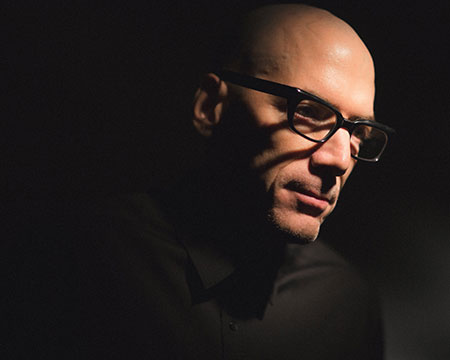With a $1 million grant from the Pritzker Pucker Family Foundation and Jessy Pucker ’19, Northwestern University School of Communication has launched a new student film incubator dedicated to flipping the script on mental health portrayals in movies, television and media.
The mission of the Pritzker Pucker Studio Lab for the Promotion of Mental Health via Cinematic Arts is to create, support and examine original narrative screenwriting, television writing and media making centered around mental health.
“We strive to provide our students with the best facilities, faculty and experiential opportunities, as well as help them address their mental health and wellbeing,” said E. Patrick Johnson, dean of the School of Communication. “We are grateful to Jessy and the Pritzker Pucker Family Foundation for helping us give students a pipeline to gain agency over mental health narratives, and through creative collaboration, reshape how we learn and talk about a very misunderstood topic.”
“It is well documented that mass media has long perpetuated a profoundly negative stigma related to mental health. Through one-dimensional viewpoints, inaccurate portrayals and depictions centered on fear and shame, the media has reinforced discriminatory behavior toward people experiencing mental health issues and propagated impediments to treatment and recovery,” said Pritzker Pucker Studio Lab director David Tolchinsky, filmmaker, screenwriter, playwright and founding director of the MFA in Writing for Screen and Stage program.
“We believe there is an enormous opportunity to use media — in particular, narrative filmmaking across drama, comedy and horror — as a means to shine a light on a wide range of mental health issues,” Tolchinsky said.
Countless films wrongly associate schizophrenia and dissociative disorder (known in popular culture as split personality) interchangeably with violence or with superpowers, for example, and many films from a range of genres present characters who display an amalgamation of mental health symptoms not attributable to a particular illness, added Tolchinsky, whose projects span comedy and darker fare.
They include “Sick by Seven,” a series of seven plays and films about mental health in the modern world; the dark comedy “An Attempt to Heal in the Contemporary World” about the rogue psychologist Wilhelm Reich; the award-winning thriller “Cassandra,” which deals with memory recovery methods of the ’90s; and an in-the-works horror feature for Shudder/AMC Networks about extreme isolation.
“Filmmakers sometimes depend on audience bias and misconceptions around mental health — as well as race, gender, sexual orientation, religion, etc., — as devices to move the plot forward and create fear, laughter or other emotional reactions,” Tolchinsky said. “By educating media makers about the multi-dimensional aspects of mental health, encouraging discussion around complex topics, and amplifying marginalized voices, we can generate a meaningful change in the way mental health is understood by society-at-large."
A three-quarter commitment for students beginning in the Winter Quarter, Studio Lab programing includes technical training and guest lectures by psychologists, social scientists, anthropologists and screenwriters. In addition to instruction, the program provides student grants of $2,000 for screenplays and $5,000 for films to be created and completed over a year and access to new film equipment to help the selected students make films and write screenplays. Ten students have been commissioned as part of the first cohort, but as the Studio Lab expands over the next five years, that number will increase.
The Studio Lab also will engage a broad audience from within Northwestern, as well as the local community, through public lectures, discussions and screenings around the depiction of mental health and mental illness on Thursdays from 7 to 9 p.m., beginning in January 2022 and host a symposium in 2023 about mental health depictions, featuring keynotes by nationally recognized figures and work by student participants.
“We’ll celebrate the films and TV shows that have, in fact, shined a light on mental health and illness and discuss those that may be problematic in an effort to determine how we, as filmmakers, can continue to entertain while also promoting empathy, understanding and acceptance,” Tolchinsky said.


